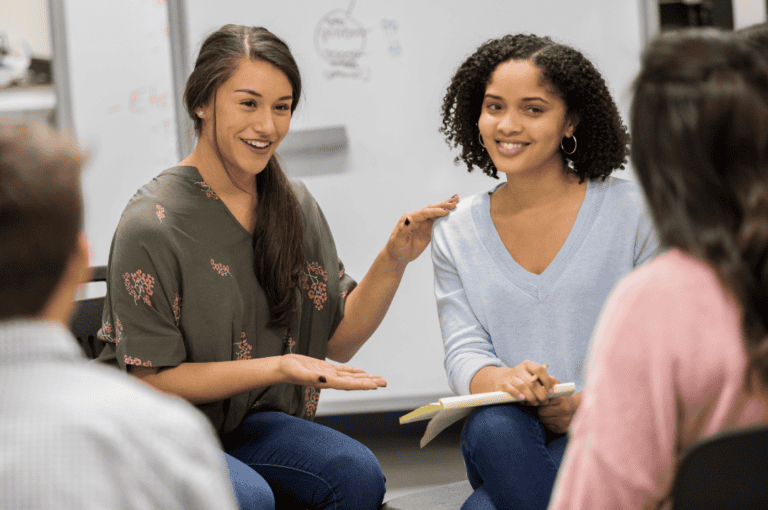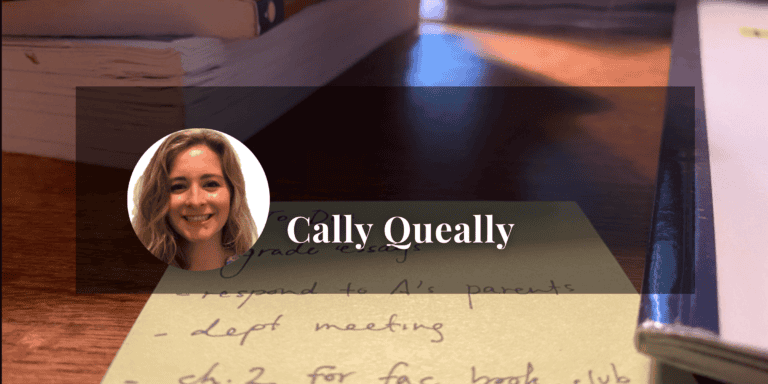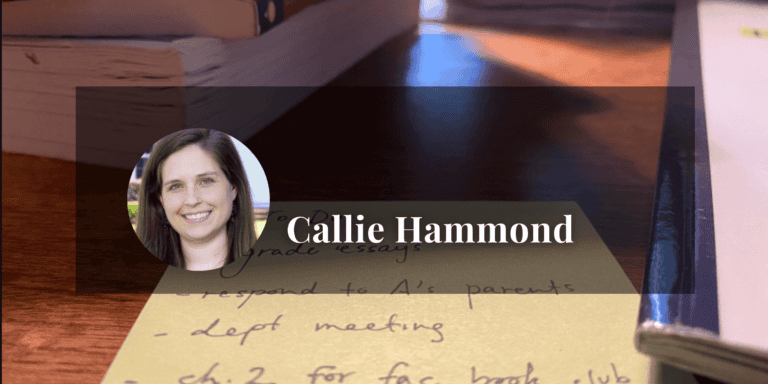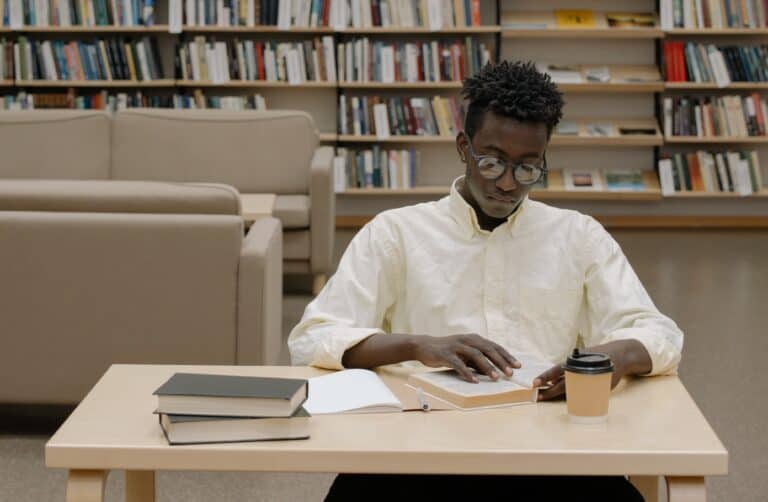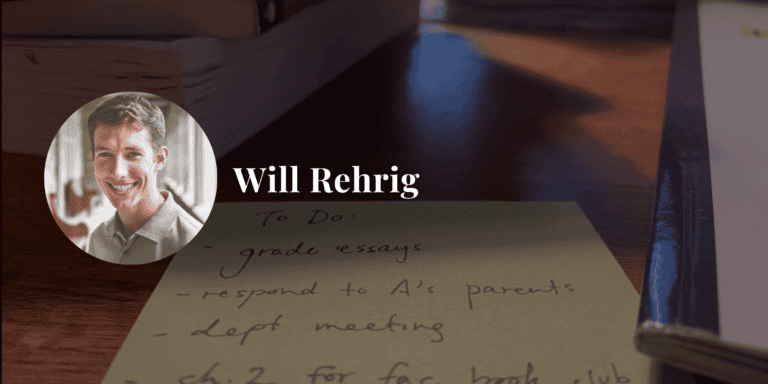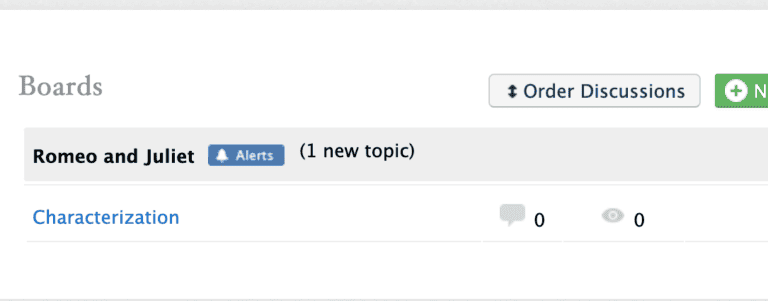Protagonists: 20 minutes with Arianna Vailas
The Protagonists series highlights the main characters of our mission: the teachers out there hustling to make their students feel known, heard, and challenged through student-led discussion.
Hometown Manchester, NH. My dad grew up there, too – it’s very much home.
Favorite teacher growing up: who and why? Ms. Sears was my sophomore English teacher. She brought English to life for me. She had us acting and had us doing research, really extending and building a full experience. I stuck around for an independent study in English with her over the summer, which involved me traveling to a nearby university to read critical sources. I loved it! It was in her class one day that I had this thought, more like a voice, that I want to be an English teacher one day. And then I thought, “no I don’t!” But I did. She was so instrumental for me. I was a pretty shy and nervous kid in high school. I remember reading The Scarlet Letter in this class, though, and reading this scene where Hester Prynne lets down her hair in the middle of the forest, bathed in sunshine. I had the same kind of experience in that class: I kind of let down my hair and stepped into who I was. The catalyst was literature, but Ms. Sears cultivated relationships and community in our class. Hers was the first class where it really felt like we were a team; I loved the people in my class, and she made that happen, and I didn’t think that was possible before.
Describe yourself as a student in three words Anxious, competitive, intense.
Current City, School, Teaching Assignments (?) I teach sophomore and senior English at Westminster School in Simsbury, CT. My sophomore class is general English, and with my seniors, in the winter and spring, we do electives. This winter, I’m doing an interdisciplinary Science Fiction course on Artificial Intelligence and Literature, which I call “Man and Machine.”
Favorite historical figure? My grandmother – my dad’s mom. She’s passed away, but she’s one of my heroes. She was in Greece during a civil war, and she escaped in the night because she was engaged to an American. She told the Greek army where the Communists were and was a celebrated hero. Something that I most admire about her is her selflessness. Even when she immigrated to America, she still sent clothes – from what little she had – back to children in Greece.
Favorite literary character? I read a lot of Sci-Fi. So many heroes are men or small boys in these stories, and I don’t identify with them much. Katniss Everdeen is probably my favorite choice. I’m also really into Wonderwoman – I’m thinking about film as literature here. Wonder Woman is so badass! For me, I had this experience going to see the film. The fact that it’s directed by a woman, Patty Jenkins, and then the fact that it’s a woman from an island of Greek female warriors, is awesome for me. As an athlete, and as a Greek woman, to see this woman who’s really cool and respected by the men was really inspiring for me. It was the first time I’d ever had that experience watching a film – I really wanted to be this female character. I’d neer seen a woman represented like this on screen.
Favorite school supply? I am a lefty. I love gel pens, and there’s a specific Inkjoy (Papermate) pen that doesn’t really smudge. I can correct essays in turquoise or hot pink, and that’s exciting. Also, my mother is a retired health teacher, and I start my classes by having my students throw around a large stuffed version of the cold virus that she gave me when she retired. It’s not intimidating to catch, and it gets everyone connected to start off. It’s random that it’s the cold virus, by the way – but that becomes a fun topic of conversation. A month in, students ask “what IS this?” and I say, “figure it out!”
Pet peeve about class (student-led?) discussion? I would say my pet peeve is probably when the conversation goes into a direction that is neither productive nor kind, which can sometimes happen when there are a lot of ideas being shared. This is something I’m constantly working on with my sophomores, in terms of steering the conversation in a productive and thoughtful direction. And, certainly, when they are more eager to share their ideas than to listen to what their classmates have to say (I am quick to forget that self-control is a pretty challenging skill, and one that comes with maturity and age!).
Favorite moment of class discussion? I think one of my favorite things is when students get really excited about something that another student has said, and they all begin to feverishly agree. There’s a hand signal that students use here; sometimes, if they hear a really powerful statement, several students will do that signal really energetically, and you can feel how engaged they are with one another. Also, I love when there’s silence and then someone speaks up and the others really encourage them. I love when I feel totally obsolete in the conversation, when there’s such a surge of momentum when you can feel that they’ve taken ownership of the subject matter. There’s a flow.
Text you count on to inspire conversation? I love several texts for this. I really love to show my students an excerpt of David Foster Wallace’s “This is Water.” I watch the video with them, and then we unpack it. Even just listening to the speech fosters interesting discussion and makes students think about their own experiences and the way they interact with the others around them. I love hearing what they think about it.
What do you nerd out about? Robots, probably. My “Man and Machine” class is so fun. I was a Biology and English double major in college, and I taught science for four years before I taught English. I nerd out about Biology, and any time I can bring it into the classroom is exciting. We were reading “Do Androids Dream of Electric Sheep” and talking about whether or not androids were alive, and eventually we were thinking about zombie fungus. They’re learning about the natural world, but they can use it to think about whether or not ants have minds, whether or not those minds can be controlled, and eventually it takes us to these big questions about what it even means to have a mind.
What is a wish for this world? The word that comes to mind is perspective. Perspective, kindness, humility. That’s a way I’m growing in right now – learning to grow in humility and learning to see things from others’ perspectives. Another text I was going to mention that I love is Chimamanda Adichie’s “The Danger of a Single Story.” The importance of extending compassion to those around you and finding your mind inside of theirs. I think about what it would look like if we, in humility, considered others more important than ourselves? How different would our interactions be? What if people assumed the best in other people? What this is coming back to is treating people with kindness regardless of who that person is or what you think about that person. I wish more of us did that.
When historians recount the past two years, what will they be especially fascinated by? First, Black Lives Matter and the relearning and rediscovering along with it will be a narrative that (I hope) historians will attend to. Second, the word “isolation” rises to the surface for me. The way that people have responded to isolation is interesting. It’s caused a paradigm shift and asked people on a corporate, social, andi individual level to reorganize their priorities and their lives. It’s related to conversations about equity and injustice, and it’s also related to questions of mental health, empathy, spiritual practice, and self-compassion.
One prediction for the future of schools? This is a hope as much as it is a prediction. Everything I’m fascinated by is how we think about learning in terms of who the students are and what they need to know for the twenty-first century. In some ways, I feel a little bit stuck in what a classroom has looked like historically, and I envision that schools will adjust to either more project-based learning or more movement in the class. There are so many students who don’t learn best when they’re stuck in a seat the whole time. We’re more conscious of mental health and the grace that we give our students. I think schools will be a place where we’re really thinking about what students need for the world we’re in. I hope that we’re giving them skills and, I pray, creativity and curiosity and courage to have hard conversations. I hope that we’ll be creating students who are problem solvers – who are excited by problems, not made anxious by them.
I also hope that schools will become more equitable and inclusive. I don’t know that this is necessarily the case with where things seem to be headed economically, but I certainly hope that schools of the future (I am thinking about the private school world, here, the one I currently belong to) will become more inclusive institutions… ones who open the door to people who have historically been excluded.
Best advice given to you by a department chair or supervisor? My department chair shared a story about his father, and the message really is just this: “love your students.”
Educator-Influencer you count on? First place you turn for classroom advice? I look all over. I’ll look it up on Google. I’m thankful for some meaningful conferences I’ve attended at Exeter and Taft. The learning and the brain conferences have been incredibly helpful to learn about how students learn. I also really love connecting with colleagues. I love to walk down the halls and see what teachers have written on their boards – see what exercises they’ve left up, what activities they’re doing. Also, connecting with colleagues at other schools who teach similar books and can share lesson plans.
Better class discussions will _______________. Lead to more empathy in my students. Lead to stronger communities, generally.

